
Radar | Apr 24,2021
Dec 11 , 2021
By Christian Tesfaye (
Christian Tesfaye (christian.tesfaye@addisfortune.net) is a researcher and Fortune's Deputy Editor-in-Chief whose interests run amok in the directions of political thought, markets, society and pop culture.
)
The African Development Bank (AfDB) recently released the 2021 edition of its Annual Development Effectiveness Review. It tracks the Bank's activities along the High 5s, the main programme areas that focus on improving access to energy, addressing food insecurity, industrialisation, continental economic integration and improving the standard of living of Africans. The Review paints a rather positive outlook of resilience despite the public health and economic impacts of the COVID-19 pandemic. It is a view shared by AfDB's East Africa deputy director-general, Abdul Kamara (PhD), who sat down with Christian Tesfaye, deputy editor-in-chief of this publication, to reflect on the continental free trade area, health infrastructure, conflict and climate change.
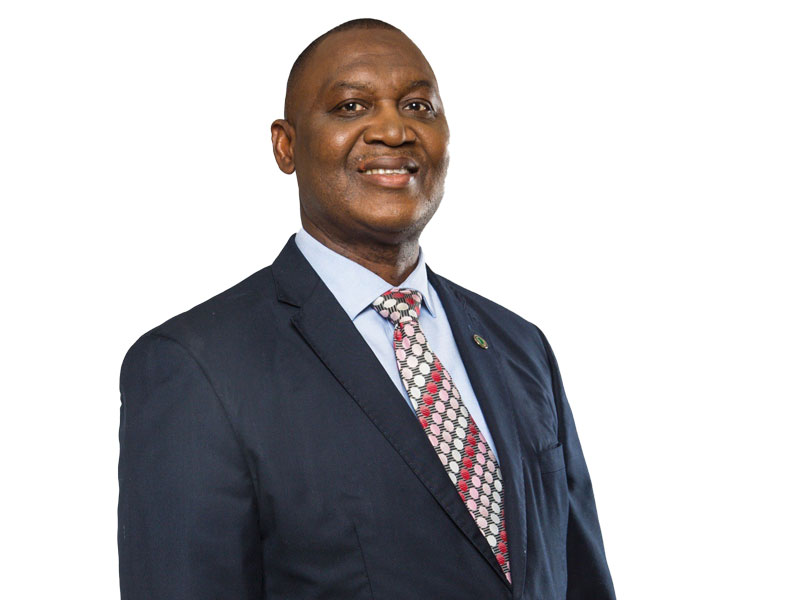
Fortune: The COVID-19 pandemic has had a detrimental impact on African economies. What is a sustainable solution for Africa economy-wise, or is the continent stuck with it for the next few years considering low vaccination levels and the rise of new variants such as Omicron?
Abdul Kamara (PhD): The pandemic, when it hit, nobody would have thought we would still be grappling with it. It affected the way we work, the way we deliver and how we measure results. It also affected our programmes because countries had to grapple with increased expenditure to boost their health systems to respond to the crisis and at the same time revenues were going down because of COVID-related travel restrictions and lockdowns. Economic activity went down.
We had to come in and we came in a very big way. We launched a three billion dollar bond in the financial markets in 2020. We came in handy to help countries scale up social support systems but also on being economically resilient.
This applies to Ethiopia as well. For example, we approved grants and positioned the country to scale up its rural and urban safety net programme and helped the government to bump up liquidity through banks. We did similar things for other countries.
How do you see the crisis and its long-term impacts?
It has the potential to roll back economic gains that we have made over the last decade. Africa was on a very positive trajectory but in 2020 it recorded a contraction of 1.8pc in GDP. Going forward, we need to focus on healthcare infrastructure and education. We do not want ever again to be caught unawares as we did, where things like personal protective gear had to come from overseas. We will support healthcare policy going forward, building diagnostic and pharmaceutical capacity and R&D.
The slowness to accessing vaccines poses a risk. There is no country in Africa that has reached the targeted level of vaccination for herd immunity to be established. The potential is there. We are in dialogue with countries such as South Africa, Senegal and Morocco to develop the capacity to manufacture vaccines.
When we say healthcare infrastructure, it also means access to power and technology that will enable countries to fully harness the innovations taking place. This means going forward on AfDB’s High 5s. The issue of power in our Power Africa programme is one, which seeks to address on a more permanent basis energy constraint. Feed Africa seeks to address food insecurity and nutrition. In Ethiopia, this year, we approved a grant for the Seqota area [in the Amhara and Tigray regions] where half of all children under the age of five are affected by stunting. There is also industralisation, where we are supporting the government in the integrated agro-industrial parks. Otherwise, the industrial parks will continue to create fiscal pressure on the government if all intermediate inputs are imported.
Naturally, I have focused on Ethiopia. That is a bias because that is where I am. But we are doing this across the continent for different countries as well. It will depend on this new variant of the COVID-19, Omicron, but also microeconomic factors such as debt. But we are working with partners and governments to address them.
AfDB is often ranked high on quality of development assistance. What accounts for this? Being Africa-based? A focus on infrastructure?
This is because of our well-balanced investments and understanding the needs of African countries. When the pandemic hit, we focused on resources, on the way we deliver and the differences we make in people’s lives. It is an approach that gives emphasis to dialogue and economic analysis. It informs our country strategy paper.
We also make sure that our support is aligned with the country’s priority. For instance in Ethiopia, we had GTPs [Growth & Transformation Plans] and now the 10-Year Perspective Plan. These are the priorities that are driving our engagement with Ethiopia. During the GTPs, we had a strong focus on infrastructure. Over 60pc of our investment has been in infrastructure – power, roads and sanitation. There is the Mombasa-Nairobi-Addis Abeba road, and the Ethiopia-Kenya electricity transmission line. There is the connection between Ethiopia and Djibouti, which is a very important corridor for this continent.
It is important for us that countries take ownership of our work with them. This is taken into consideration in looking at effectiveness and purpose. Our approach is also balanced. We look at environmental issues and have a very thorough vetting process. Is a road we are building going to pass through people’s homes, are they being compensated and informed?
There is a great deal of political uncertainty in Ethiopia at the moment but this is not unique in Africa. How strong a part can economic development play in addressing these issues? How can the AfDB help?
Development plays a crucial role in peace and stability. It goes two ways. When conflict arises, you need a political solution. But we also recognise the role of development assistance in terms of addressing poverty, inequality and bringing connectivity so that some regions are not marginalised. For instance, we have the Four Towns water project in Ethiopia which covers Adwa [Tigra], Adama [Oromia], Bichena [Amhara] and Gode [Somali]. When you bring those services closer to people and you reduce the difference between big cities and rural areas, it helps to consolidate growth. It also tends to bring stability.
We have been focusing in the past year on large-scale power generation, including the Gibe hydroelectric power projects. Of late, we are focusing on transmission for the particular reason that it helps enhance last-mile connectivity. We have the Addis Abeba transmission and distribution network project with JICA [Japan International Cooperation Agency]. It helps communities around the city have productive opportunities to access power for running businesses and domestic use.
On top of this, in the post-conflict time, development support helps consolidate peace. In this, we have at the AfDB the Transition Support Facility. It does a very thorough analysis of every country. It identifies the drivers of fragility upfront, including lack of development opportunities. It also looks at levers of change to make sure that growth is inclusive.
There is a great deal of positivity for the African Continental Free Trade Area (AfCFTA). How worthwhile does the AfDB see it as? Are you happy with the rate of adoption by African governments?
We commend African governments for taking such broad initiatives. We are supporting the African Union on the Trade Area. The positivity around it is fully justified. It can be a game-changer that will address the problems of Africa’s small and fragmented markets by creating a single market. It will boost trade, improve the competitiveness of the continent and enhance the attractiveness of the continent as an investment destination.
It will be easier said than done though. There are pre-requisites with legislations and regulations. Primarily, the internal productivity constraints of countries have to be addressed. You cannot have a free market if you are not producing, if you are only importing or are not adding value. Infrastructure is key here.
It does not help that very few countries have reached their energy generation targets. Electricity is important for firms to become competitive, as is water supply. Roads are critical as well. If you produce, but you cannot reach markets in a timely manner, and you cannot process and store because electricity access is not consistent, it is hard to be competitive. Those are the caveats we have and the areas we are prioritising.
What kind of space does Africa have to transition to renewable energy? How devastating would it be for Africa to focus away from oil and coal before it sufficiently industrialises? Can green goals and industrialisation be achieved simultaneously?
All developed economies have benefited from cheap sources of energy. And Africa is rich in fossil fuel reserves. Countries like Nigeria, Algeria and Angola are dependent on oil production. They should be granted the opportunity to industrialise and trade with the rest of the continent, and support continent-wide industrialisation.
That said, governments and development partners need to focus on the transition to renewables and cleaner energy, and over time transition away from non-renewables. But we have to ensure it does not cause revenue and job losses. The transition has to be managed justly to not affect Africa’s industrialisation and economic development.
The transition to renewables is expected to bring net economic gains in the future. We are committed to ceasing investment in coal and oil exploration in the long-term, in a phased manner.
We have discussed here the challenges and opportunities for Africa at the present time. How optimistic are you for the continent over the next few decades?
We are very optimistic as we have to appreciate how far the continent has come. For instance, Africa’s resilience during the COVID-19 crisis goes a long way to send the message that it is not necessarily as fragile as the world has been made to believe.
Over the last decades, the continent has made many gains. Countries are slowly transforming their economies. Ethiopia, for instance, has several industrial parks and a higher power generation capacity. It means it is only a matter of time before the country gets to economic takeoff. The foundation is there in most of the countries.
There is a caveat with climate change. Although Africa contributes least to global warming, it’s worst hit by its impacts. There is a risk there. But dialogue is going on at very high levels. Many commitments have been made during the COP26 [UN Climate Change Conference]. Our leaders are also becoming vocal in articulating their position and in showing that those who are polluting more take responsibility to help us in adaptation.
Taking all of this, I have every reason to be optimistic. There are challenges, including conflict, but that is part of life. But the recognition now is that we are capable of addressing them and that they would not derail or remove us from our development trajectory.
PUBLISHED ON
Dec 11,2021 [ VOL
22 , NO
1128]

Radar | Apr 24,2021
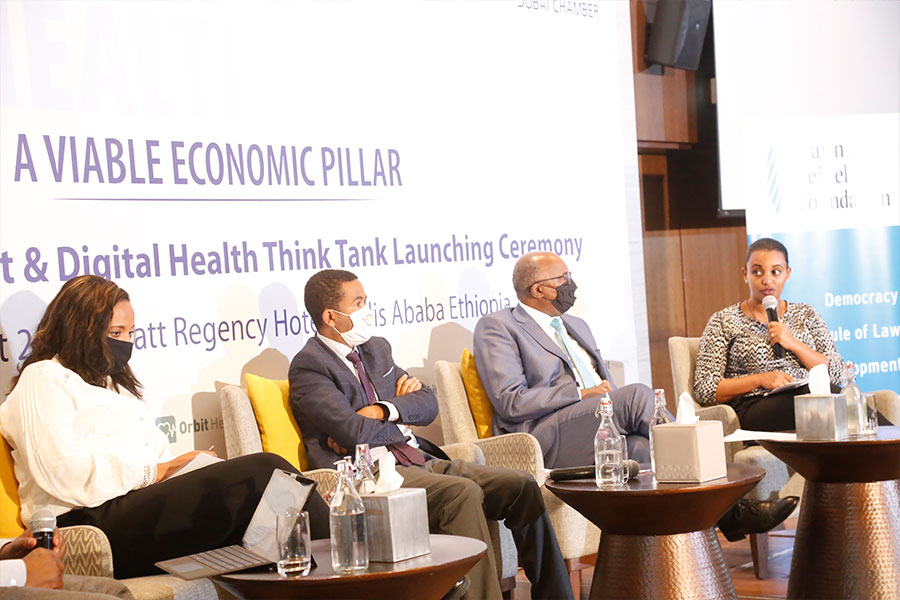
Radar | Aug 28,2021

Radar | Dec 19,2018
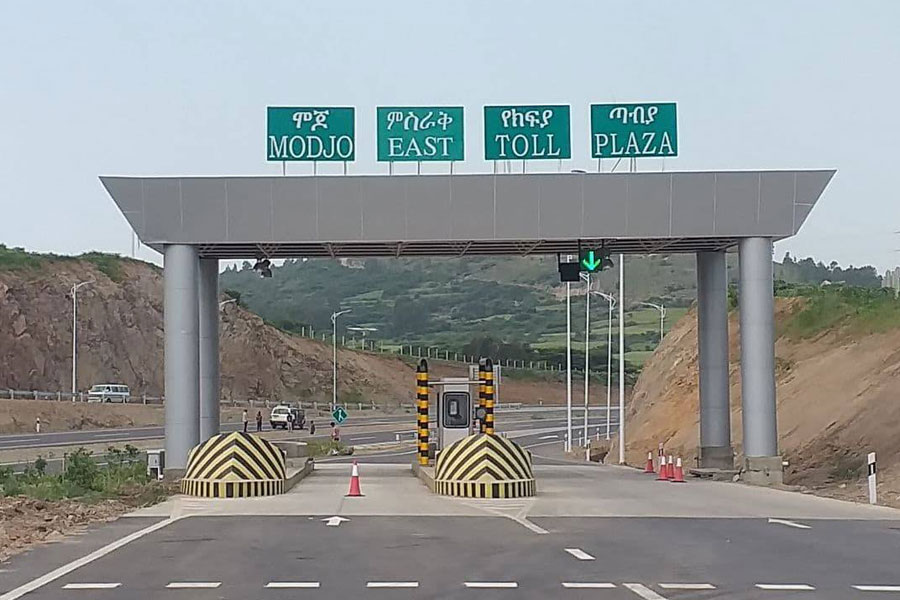
Fortune News | Mar 19,2022
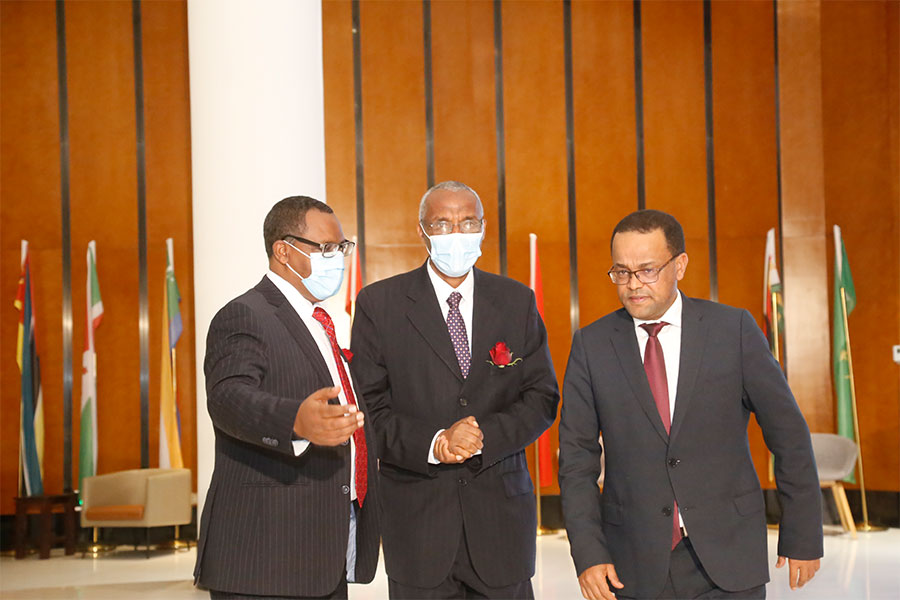
Fortune News | Aug 14,2021
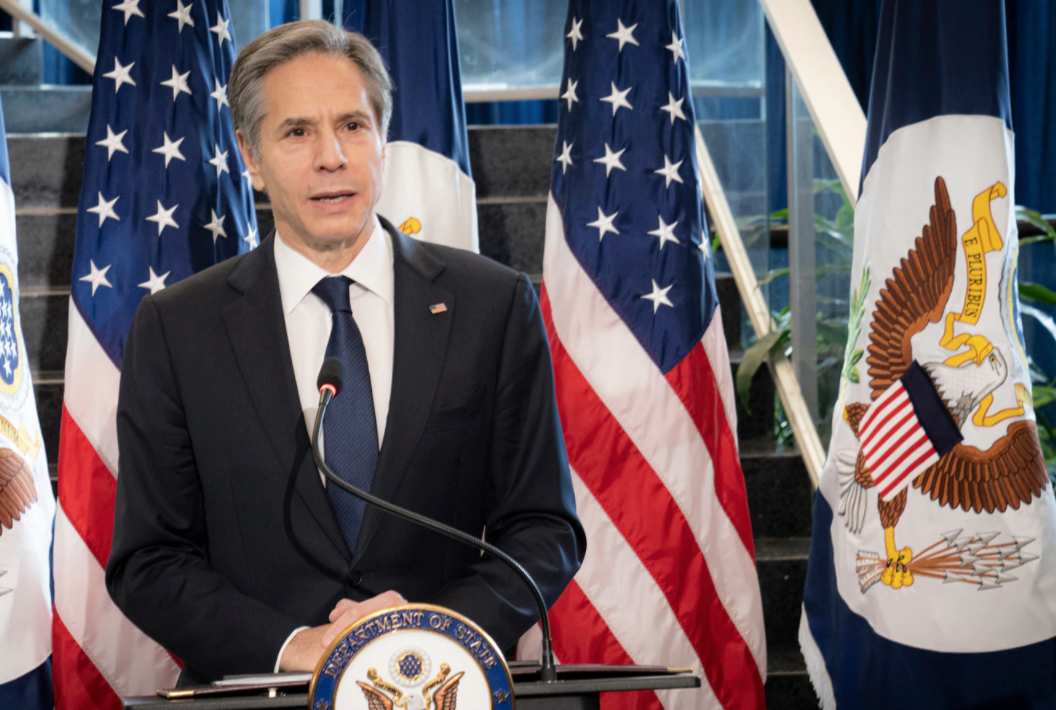
Fortune News | May 24,2021

Radar | May 07,2022
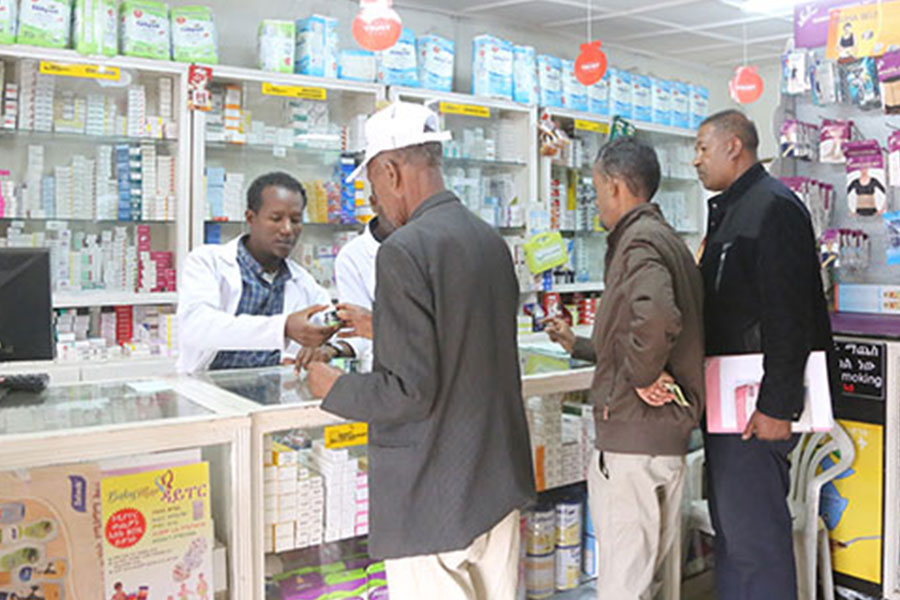
Fortune News | Mar 30,2022

Viewpoints | Jun 21,2025

Radar | Oct 09,2021

Dec 22 , 2024 . By TIZITA SHEWAFERAW
Charged with transforming colossal state-owned enterprises into modern and competitiv...

Aug 18 , 2024 . By AKSAH ITALO
Although predictable Yonas Zerihun's job in the ride-hailing service is not immune to...

Jul 28 , 2024 . By TIZITA SHEWAFERAW
Unhabitual, perhaps too many, Samuel Gebreyohannes, 38, used to occasionally enjoy a couple of beers at breakfast. However, he recently swit...

Jul 13 , 2024 . By AKSAH ITALO
Investors who rely on tractors, trucks, and field vehicles for commuting, transporting commodities, and f...

Oct 11 , 2025
Ladislas Farago, a roving Associated Press (AP) correspondent, arrived in Ethiopia in...

Oct 4 , 2025
Eyob Tekalegn (PhD) had been in the Governor's chair for only weeks when, on Septembe...

Sep 27 , 2025
Four years into an experiment with “shock therapy” in education, the national moo...

Sep 20 , 2025
Getachew Reda's return to the national stage was always going to stir attention. Once...